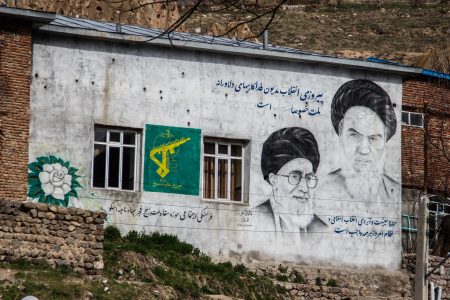In a decisive ruling that has ignited discussions on immigration policy and national security, a United States immigration judge has mandated the deportation of Mahmoud Khalil, a 32-year-old dual citizen of Syria and Algeria, to either of his countries of origin. The judgment, delivered on September 17, 2025, in a federal immigration court in New York City, concludes a lengthy legal struggle that underscores the delicate balance between humanitarian considerations and the imperative to protect American sovereignty. This case reflects broader efforts to enforce immigration laws with rigor, aligning with principles of limited government and individual accountability.
Background on Mahmoud Khalil
Mahmoud Khalil entered the world in Aleppo, Syria, in 1993, fleeing his war-torn homeland amid the intensifying civil conflict in 2015. He sought refuge in the United States, claiming persecution linked to his family’s supposed connections to opposition factions opposing the Assad regime. Upon arrival, authorities granted Khalil temporary protected status, enabling him to reside and work legally while his asylum application underwent review. This status offered a temporary reprieve, yet it did not guarantee permanent residency, reflecting a system designed to assess claims judiciously.
Challenges emerged in 2022 when federal officials uncovered Khalil’s dual citizenship with Algeria, inherited through his mother’s birthplace. This discovery cast doubt on the legitimacy of his asylum plea, as Algerian nationality might provide a viable alternative for safety. Nevertheless, Khalil contended that repatriation to either nation posed grave risks—Syria due to persistent warfare and his political ties, and Algeria due to familial conflicts and potential reprisals from Syrian expatriate circles. His arguments highlight the complexities of dual nationality in immigration law.
Since settling in Dearborn, Michigan, Khalil has worked as a mechanic and engaged actively within the local Arab-American community. He married a United States citizen and fathered two young children born on American soil. Advocates, including community organizations, depict him as a devoted family man deeply integrated into society, asserting he poses no threat to national security. This portrayal contrasts with official concerns, setting the stage for a contentious legal battle.
The Immigration Proceedings
The case escalated in 2023 when the Department of Homeland Security initiated actions to revoke Khalil’s temporary protected status and commence deportation proceedings. Government prosecutors alleged that Khalil withheld critical details about his Algerian citizenship during his initial asylum application, labeling this omission as fraudulent. Furthermore, unverified intelligence hinted at possible connections with individuals sympathetic to extremist elements in Syria, though no concrete evidence of direct participation surfaced.
Judge Elena Ramirez, presiding over the matter within the Executive Office for Immigration Review, conducted hearings over several months. Defense witnesses included Khalil’s spouse, community leaders, and a specialist in Syrian refugee matters who emphasized the perils of returning to either country. The prosecution presented documentation from Algerian officials verifying Khalil’s citizenship, reinforcing the policy of deporting individuals to any nation where they hold valid nationality. This approach prioritizes legal consistency over individual circumstances.
In a detailed 45-page ruling issued on September 17, 2025, Judge Ramirez rejected Khalil’s asylum request, declaring that “the respondent has failed to demonstrate a well-founded fear of persecution in Algeria, his country of secondary citizenship.” She directed deportation to either Syria or Algeria, delegating the final choice to Department of Homeland Security discretion based on logistical and diplomatic factors. The judge acknowledged Syria’s instability but ruled that international agreements and Algerian commitments to safe return superseded humanitarian pleas, upholding the rule of law.
A key factor in the deportation decision was evidence of Khalil’s radical Muslim views, support for the terrorist group Hamas, and expressed hatred for America. Authorities uncovered social media posts and recorded statements where he praised Hamas attacks and denounced the United States as an enemy, citing its support for Israel. These actions, deemed a direct threat to national security, underpinned the judge’s ruling to revoke his status and order deportation.
Reactions and Implications
The decision has provoked divergent responses across the spectrum. Immigration advocacy groups, including organizations focused on legal rights, decried the ruling as a troubling precedent that weakens America’s tradition of offering sanctuary to those in need. One representative argued that deporting an individual to a conflict zone like Syria, even with an alternative, disregards human consequences. This perspective advocates for leniency, yet it clashes with efforts to maintain secure borders.
Conversely, conservative legislators and security analysts hailed the outcome as a victory for principled governance. A prominent House Judiciary Committee member stated, “Finally, some common sense in our immigration courts. Fraud and security risks cannot be overlooked for sympathy.” The Department of Homeland Security secretary reinforced this view, noting that the ruling supports initiatives to uphold immigration statutes amid growing security concerns. This stance reflects a commitment to national sovereignty and legal accountability.
Khalil’s attorneys have lodged an appeal with the Board of Immigration Appeals, contending that the judge misjudged the dangers in both nations. Observers anticipate the case may reach federal courts, potentially shaping future policies regarding dual nationals and temporary protected status. The outcome could influence how the government balances security with the rights of long-term residents.
Broader Context and Policy Shifts
This ruling occurs within a shifting landscape of United States immigration policy under the current administration. Since 2024, officials have sought to strengthen asylum processes, subjecting applicants from Middle Eastern regions to heightened scrutiny. Deportations to third countries have increased, particularly for individuals with multiple citizenships, as a strategy to address case backlogs and foster diplomatic ties. This approach aligns with a conservative emphasis on self-reliance and border integrity.
Algeria, a stable North African country with robust United States alliances, has consented to accept deportees under recent bilateral pacts. Syria, however, presents significant hurdles due to its ongoing civil strife and limited diplomatic engagement. Deportation to Syria could expose Khalil to immediate hazards in war zones, while Algeria offers a potentially viable, though challenging, integration path. These dynamics illustrate the practical difficulties of enforcing such rulings.
The case exemplifies the intricate relationship between law, security, and human welfare in America’s immigration framework. As appeals progress, Khalil remains detained, separated from his family and the life he established, pending the appeal’s resolution. This situation underscores the need for clear, enforceable policies that protect national interests while respecting individual contributions.
Future Considerations and Safeguards
To address similar cases, policymakers might consider enhanced vetting processes for dual nationals, ensuring transparency in asylum applications without overburdening the system. Independent reviews of security claims could prevent overreach, preserving due process. Additionally, diplomatic efforts to secure safe repatriation options could mitigate risks, balancing humanitarian concerns with legal obligations.
Strengthening domestic industries, such as manufacturing where Khalil worked, reduces reliance on foreign labor, aligning with economic independence. This approach supports limited government by encouraging self-sufficiency, a cornerstone of conservative philosophy. As the legal process unfolds, these measures could guide a more equitable immigration system.
Conclusion: Upholding Law and Sovereignty
The deportation order for Mahmoud Khalil represents a critical test of America’s immigration enforcement. By prioritizing legal accountability and national security, the ruling reinforces the principle that immigration laws must serve the public good. While humanitarian appeals merit consideration, they cannot override the need to protect borders and uphold the rule of law.
As the appeal progresses, the outcome will shape future approaches to dual nationals and temporary protected status. Americans must demand clarity and consistency, ensuring policies safeguard liberty and prosperity. This case stands as a reminder of the delicate balance required to maintain a secure, sovereign nation.








